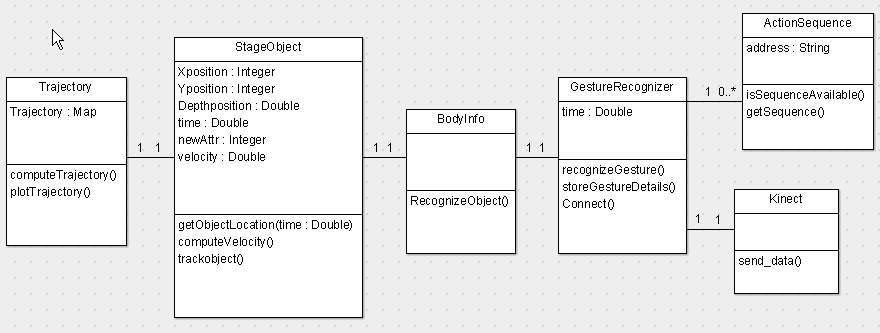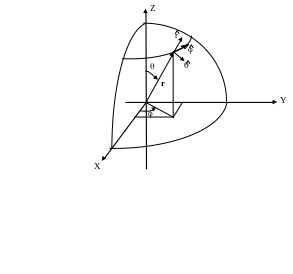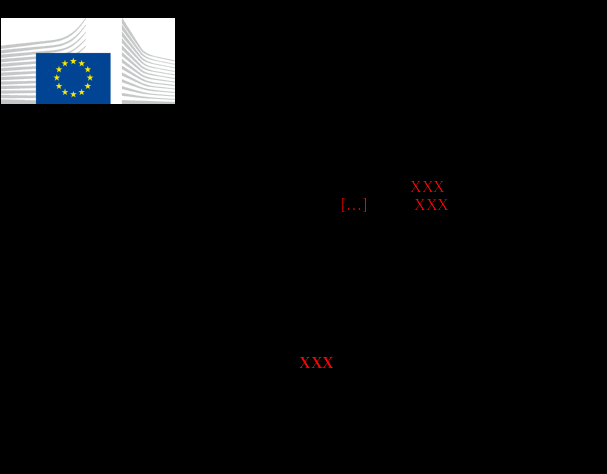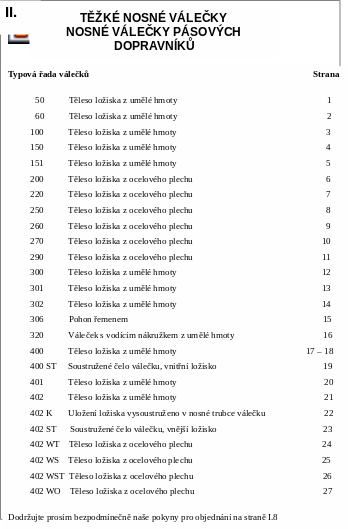CLT 327 THE STRUCTURALIST PARADIGM AND ITS TRANSFORMATIONS (FALL
20 THE STRUCTURALIST CONCEPTION OF OBJECTS ANJAN CHAKRAVARTTYCLT 327 THE STRUCTURALIST PARADIGM AND ITS TRANSFORMATIONS (FALL
THEORIES LOOKING FOR DOMAINS FACT OR FICTION? STRUCTURALIST TRUTH
CLT 327 The Structuralist Paradigm and its Transformations (Fall 1996)
CLT 327 The Structuralist Paradigm and its Transformations (Fall 1996)
Seminal for the development of literary theory in this century, especially as led by French writers and thinkers, is the revolution starting from Saussure and his structural understanding of language. Virtually all the humanities disciplines, and literature in particular, have undergone radical transformation in its wake. Our selection of texts and theorists is guided by a central interest in following the development and transformations of the structuralist paradigm as it has been applied to poetic language. The most general questions concerning the grounds and limits of language’s meaningfulness and the powers or impotency of the sign will be approached with special emphasis on the insights that open up from within structuralist and post-structuralist theoretical perspectives trained on the poetry particularly of Baudelaire, Rimbaud, Mallarmé, and Ponge.
TEXTS:
Classpack at Campus Copy
[+Ross Chambers on Baudelaire’s “A une passante”]
Barthes, Writing Degree Zero/Le degrée zéro de l’écriture
_______, Elements of Semiology (optional)
Derrida, Of Grammatology/De la Grammatologie
______, Dissemination / La dissémination
______, Signéponge (optional)
______, Acts of Literature (optional)
Kristeva, Revolution in Poetic Language/Révolution dans le language poétique
Mallarmé, Selected Poetry and Prose
Rimbaud, Complete Works
Saussure, Course in General Linguistics/Cours de linguistique générale
CLT/French 327 Theories of Poetic Language (Spring 1994)
New experiences of language and of the worlds it renders accessible have been pioneered by avant-garde movements in poetry, particularly by “les symbolistes” together with their Romantic precursors and modernist heirs. Literary theories to a large extent have been stimulated by these new experiences of poetic language. In this course we will read contemporary literary theorists like Derrida, Kristeva, Barthes, De Man, Blanchot, Jakobson and others in close connection with the sorts of poetic works which have produced the phenomena to be theorized within the new horizon of “language” in our time.
The course is designed to introduce students to classic, key-stone texts and concepts of literary theory, not through a survey of “isms” but rather by concentrating on the question of poetic language; through this specific thematic focus it aims to bring out what the various theoretical approaches--structuralist and deconstructive, hermeneutic and post-modern--really mean in application.
TEXTS:
Course Reader at Campus Copy
Barthes, Writing Degree Zero/Le degrée zéro de l’écriture
Baudelaire, Selected Poems
Derrida, Of Grammatology/De la Grammatologie
Kristeva, Revolution in Poetic Language
Mallarmé, Selected Poetry and Prose
Valéry, Selected Writings
SCHEDULE OF READINGS:
1/18 Introduction: The Orphic and the Hermetic Conceptions of Poetic Language
1/25 Heidegger, “Hölderlin and the Essence of Poetry”
Wordsworth, Preface to Lyrical Ballads
Culler, “Apostrophe”
2/1 de Saussure, “The Nature of the Linguistic Sign,” Cours I, 1
Jakobson, “Linguistics and Poetics”
________, “Charles Baudelaire’s ‘Les Chats’”
Aristotle, Poetics, secs. 20-22 (on metaphor)
2/8 Barthes, Writing Degree Zero
_______, extract from “Le Mythe, Aujourd’hui”
Rimbaud, “Voyelles,” “Le Batteau Ivre,” Lettres du voyant
2/15 Kristeva, Revolution in Poetic Language, I (“The Semiotic and the Symbolic), pp.1-106
Rimbaud, Illuminations (esp. “Matinée d’ivresse,” “Barbare”)
2/22 Kristeva, Revolution in Poetic Language, II-IV (Negativity, Heterogeneity, Practice), pp. 107-235
Rimbaud, Une Saison en Enfers + “L’Éternité,” p. 138
2/1 Derrida, Of Grammatology, cc. 1-2
3/8 SPRING BREAK
3/15 Blanchot, “Literature and the Right to Death”
Mallarmé, “Poésies” (esp. "L'Après midi d'un Faune,” “Le vierge, le vivace...”)
Derrida, “The Double Session”
Verlaine, “Art poétique”
3/22 Mallarmé, “Poésies” (esp. “Herodiade,” “Sonnet en x”)
Mallarmé, “Crise de vers,” “Quant au livre,” “Le livre, instrument spirituel,” “Le mystère dans les lettres”
Johnson, “Les Fleurs du mal armé: Some Reflections on
Intertextuality”
Plato, “Cratylus”
3/29 Mallarmé, “Igiture,” “Un Coup de dés”
Blanchot, “The Igitur Experience”
Lyotard, excerpt from Discours, Figure on “Coup de dés”
4/5 Valèry, “Le Cimetière marin” et al.
______, “Poetry and Abstract Thought”
______, “Last Visit to Stéphane Mallarmé”
Genette, “Valery and the Poetics of Language”
4/12 Benjamin, “On Some Motifs in Baudelaire”
________, “The Task of the Translator”
Baudelaire, Fleurs du mal (esp. “À une passante”)
4/19 De Man, “The Rhetoric of Temporality”
______, “Anthropomorphism and Trope in Lyric”
Baudelaire, Fleurs du mal (esp. “Correspondances”)
4/26 Baudelaire, Fleurs du mal (esp. “Le Cygne”)
Most, “The Language of Poetry”
Jameson, “Baudelaire as Modernist and Postmodernist: The Dissolution of the Referent and the Artificial Sublime”
Tags: (fall 1996), structuralist, (fall, transformations, paradigm
- HELEN KELLER SERVICES TIMELINE 1893 – 2018 1893 INDUSTRIAL
- ADVANCES IN SURFACE SEISMIC ACQUISITION PROCESSING AND INTERPRETATION ALLEN
- DIENSTSTELLE ANLAGE UNIVERSITÄT AUGSBURG ZUR FMBEK VOM 5 FEBRUAR
- SZPITAL W PUSZCZYKOWIE SZPITAL W PUSZCZYKOWIE WYBUDOWANO NA NIE
- EL XXVII MEMORIAL GOÑI ACERCA LO MEJOR DEL CAMPO
- FORO DE LA DIÁSPORA HAITIANA CONTRIBUYENDO AL PLAN ESTRATÉGICO
- SHORT TERM TENDER NOTICE THE ORIENTAL INSURANCE COMPANY LIMITED
- KONTAKT NA CO MONITORY NAŠA FIRMA INTERTEC SPOL S
- S U T A R T I S 201
- na Temelju Članka 11 Stavka 2 Zakona o Komunalnom
- DR FARKAS KÁROLY CSC GAZDASÁGI FELADATOK MEGOLDÁSA SZÁMÍTÓGÉPPEL LEKTORÁLTA
- CORECT STANDARDS AND GUIDELINES INTERFACE STANDARDS CORECT TIPS INTERFACE
- CURRICULUM VITAE MC ROSA GÓMEZ TOVAR CORREO ELECTRÓNICO ROSAGOMEZTOVAROUTLOOKCOM
- STEINWAY PIANO GALLERY OF MILWAUKEE 11550 W NORTH AVE
- AYUNTAMIENTO DE ORIHUELA 1 EXPEDIENTE Nº 153982016 ASUNTO CONVOCATORIA
- PANAYIR AİLE SAĞLIĞI MERKEZİ EL HİJYENİ ELDİVEN VE MASKE
- LECTROSAF III AEROSOL LIMPIADOR DE CONTACTOS ELÉCTRICOS Y TABLEROS
- GUIDE TO SUPPORT A PERSON WITH A RESIDENTIAL SERVICE
- KORUPCIJOS RIZIKOS VALDYMO VERTINIMAS ATLIEKANT VIDAUS AUDITĄ KLAUSIMYNAS (REKOMENDUOJAMAS)
- SILABUS BIDANG KEAHLIAN TEKNOLOGI DAN REKAYASA PROGRAM KEAHLIAN
- KLAUZULA INFORMACYJNA DLA OSÓB PRZYSTĘPUJĄCEJ DO NARODOWEGO PROGRAMU SZCZEPIEŃ
- C ERAMICS (KERAMIKOS “BURNT STUFF” DESIRABLE PROPS
- READINGS (FOR PART I AND PART II OF HEALTH
- DATUM REHABILITERINGSKLINIKEN ARBETSTERAPEUTFYSIOTERAPEUT SJUKGYMNAST TELEFONNR ANAMNES NAMN PERSONNR
- LE OTTO REGOLE PER UN’EFFICIENTE VISIONE AL VOLANTE FEDEROTTICA
- PATRICK AN INTRODUCTION TO MEDICINAL CHEMISTRY 3E CHAPTER 05
- ESTABLECER LA RELACIÓN “MÁS Y MENOS” EN CADA
- EVALUASI KEBIJAKAN SISTEM ZONASI DALAM PENERIMAAN PESERTA DIDIK BARU
- ESSAM Z THE IRAQI JOURNAL FOR MECHANICAL AND MATERIAL
- PERANGKAT PEMBELAJARAN PROGRAM SEMESTER MATA PELAJARAN FIQIH KELAS IV
 PROYECTO EMPRESARIAL CURSO 20092010 2º BACHILLERATO ECONOMÍA DE LA
PROYECTO EMPRESARIAL CURSO 20092010 2º BACHILLERATO ECONOMÍA DE LATORQUE PUTTING “TORQUE” IN RECOGNIZABLE TERMS TORQUE IS A
SKILL 8 SOLUTE IN A SOLUTION ( SOLUTION)
A PRIMARY PROJECT FOR ALEVEL CURRICULUM I PREPARATORY PROJECT
 CHAITANYA SATHI & BRADLEE KRUPA 3242011 MILESTONE 1 STATEMENT
CHAITANYA SATHI & BRADLEE KRUPA 3242011 MILESTONE 1 STATEMENTINFORME SOBRE LA DISCRIMINACIÓN CONTRA LA MUJER EN ASUNTOS
 SISTEMAS DE COORDENADAS ESFÉRICAS E CILÍNDRICAS COORDENADAS ESFÉRICAS (R)
SISTEMAS DE COORDENADAS ESFÉRICAS E CILÍNDRICAS COORDENADAS ESFÉRICAS (R)RELAZIONE MORALE ANNO 2017 CARE SOCIE E CARI SOCI
TIMETABLE OF STATISTICAL RELEASES – BIS AND THE INSOLVENCY
 DETAILED BUSINESS CASE – REVIEWER ASSESSMENT TOOL – BETTER
DETAILED BUSINESS CASE – REVIEWER ASSESSMENT TOOL – BETTERESTABLECE SANCIONES A LOS PADRES DE MENORES DE EDAD
GEMİ VE DENİZ YAPILARI MÜHENDİSİ TANIM DENIZ TAŞITLARI
 6 MINISTÉRIO DA DEFESA EXÉRCITO BRASILEIRO DEPARTAMENTOGERAL DO PESSOAL
6 MINISTÉRIO DA DEFESA EXÉRCITO BRASILEIRO DEPARTAMENTOGERAL DO PESSOAL REGULAMENTUL DE PUNERE ÎN APLICARE (UE) NR …… AL
REGULAMENTUL DE PUNERE ÎN APLICARE (UE) NR …… ALTARİH ANABİLİM DALI DOKTORA PROGRAMINDA OKUTULACAK DERSLER VE İÇERİKLERİ
 I SERVICIUL DE ACHIZITII PUBLICE SI APROVIZIONARE BULEVARDUL EROILOR
I SERVICIUL DE ACHIZITII PUBLICE SI APROVIZIONARE BULEVARDUL EROILOR HLADKÝ KONEC OSY 27
HLADKÝ KONEC OSY 27 A SHORT COURSE ON ISLAM AND MUSLIMS COURSE
ZAŁĄCZNIK DO UCHWAŁY RADY WYDZIAŁU PRAWA I ADMINISTRACJI UNIWERSYTETU
 ZAŁĄCZNIK NR 2 DO ZARZĄDZENIA NR SO00501822020 BURMISTRZA ROPCZYC
ZAŁĄCZNIK NR 2 DO ZARZĄDZENIA NR SO00501822020 BURMISTRZA ROPCZYC